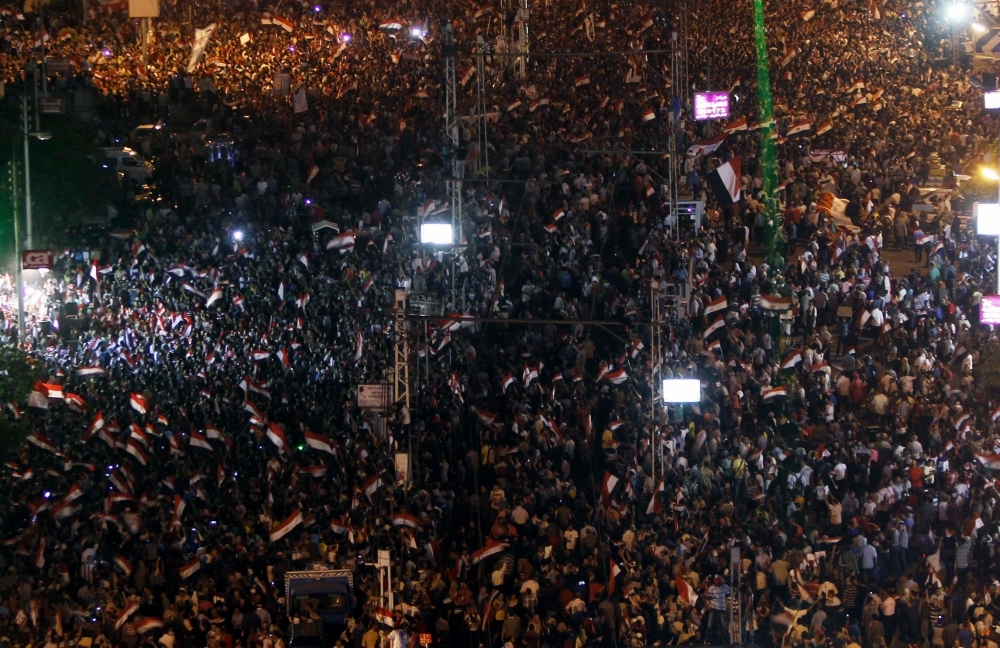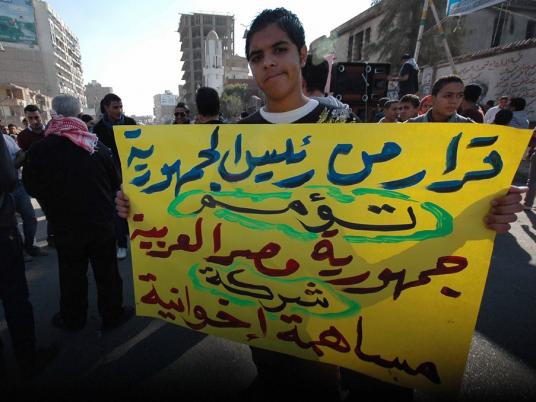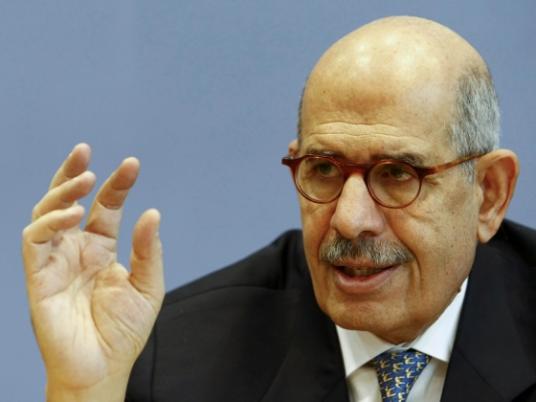State-owned al-Akhbar runs an exclusive story about former president Hosni Mubarak saying that he is being treated in hospital in Saudi Arabia. The paper quoted "sources informed about the news" who said Mubarak was in Tabuk in Saudi Arabia receiving chemotherapy for one hour every five days for colon and pancreatic cancer. The story said his family was with him in the private wing of the military hospital.
The health of Mubarak has been the subject of frequent speculation as he aged in office and particularly since he had gallbladder surgery in March last year in Germany.
Officials had said he recovered after the operation and they frequently dismissed rumors about ill health. Mubarak had resumed a full schedule of meetings and other duties.
Since he stepped down after a wave of anti-government protests on 11 February, Egyptian officials have said Mubarak was in the Red Sea resort of Sharm el-Sheikh. They also denied reports and rumors that he was sick and would travel abroad to receive treatment.
Egypt on Monday imposed a travel ban on Mubarak and his family while sources of their wealth are investigated. According to the public prosecutor's office, the prosecutor issued an order to freeze the family's assets following complaints they acquired wealth illegally.
State-run Al-Gomhorriya features on its front page a story about Gamal Mubarak, who the paper alleged was seen during last Friday prayers "depressed and [with] a long beard". Gamal Mubarak was praying among the workers and the bodyguards in the palace where he lives and the paper reported it is likely his wife Khadiga El Gammal is in London.
The paper highlighted as well some details of Mubarak's living conditions. The former president and his family are staying in two palaces owned by his sons Alaa and Gamal in the Golf resort owned by the notorious weapons and gas businessman Hussein Salem.
Salem is believed to be the façade for the Mubarak family and is under US federal investigation for allegedly padding weapons shipping costs.
According to the paper Mubarak enjoys a residency that doesn't differ too much from his life in office. He is reportedly surrounded by a heavy security presence–no one is allowed to approach Mubarak's new residence and even the Chef de cuisine, Kitchen assistants and doctors are subject to tight security measures.
Other news about Mubarak in Al-Gomhorriya's inside pages features a decision made by the newly-appointed Culture Minister Mohamed al-Sawy to remove all Mubarak's photos from ministry offices because those photos serve, according to the minster, as "representatives of a corrupt and despotic" era.
Wednesday's papers highlighted the meeting between Egypt's military leaders and a group of politicians, writers, businessmen and activists including opposition figure Mohamed ElBaradei and Arab League Chief Amr Mussa, a potential presidential candidate.
The talks, according to state-run Al-Ahram, focused on the process of amending the constitution, especially clauses setting the conditions for presidential candidates and limiting the number of terms a president can serve to two four-year terms instead of an unlimited number of six-year terms. The paper reported the participants also discussed possible means of developing the national economy and a proposed timetable for holding both parliamentary and presidential elections.
Al-Gomhorriya also highlighted that the Supreme Council of the Egyptian Armed Forces (SCAF) on Tuesday emphasized that “security and stability are achieved through reducing sit-ins and demonstrations."
In other news, today’s papers focused on the Egyptian reactions over Burundi signing on Monday a pact to revise Nile water-sharing agreements, which Egypt opposes. Burundi is the sixth upriver country to sign the agreement, joining Kenya, Uganda, Ethiopia, Tanzania and Rwanda.
Liberal Al-Wafd daily ran a headline in its front page reading “Egypt anxiety over the crisis with the Nile basin countries.”
The new accord replaces one sealed in 1929 and creates a permanent commission to manage Nile waters, with the aim of guaranteeing equitable use of the resources by the parties. Under the original deal, Egypt was entitled to 55.5 billion cubic metres of water a year, the majoirty of the Nile's total flow of around 84 billion cubic metres.
The paper quoted Egypt's Water Resources Minister Hussein el-Atfi saying "the framework signed by these states is in violation of procedural regulations that have been agreed upon by Nile Basin states, and it does not absolve these states of their previous commitments with Egypt."
El-Atfi added that "Egypt welcomes all cooperation with Nile Basin states on development projects, on condition that Egypt's water shares are not harmed."
Egypt says the river's waters feed a farming sector accounting for a third of its jobs. Cairo fears a reduction to its water flow may exacerbate the risk of its population growth outstripping water resources as early as 2017.
State-run daily Rose al-Youssef analyzed Egypt's potential responses, saying the military council is not likely to stop cooperating with the six countries.
Instead, Egypt could reject the new agreement and continue to emphasize its historical rights enshrined in the colonial-era 1929 treaty, which allows Egypt to veto any irrigation or hydro-power projects proposed by upstream countries, and the subsequent 1959 Nile water agreement with Sudan.
Egypt's papers:
Al-Ahram: Daily, state-run, largest distribution in Egypt
Al-Akhbar: Daily, state-run, second to Al-Ahram in institutional size
Al-Gomhorriya: Daily, state-run
Rose al-Youssef: Daily, state-run, close to the National Democratic Party's Policies Secretariat
Al-Dostour: Daily, privately owned
Al-Shorouk: Daily, privately owned
Al-Wafd: Daily, published by the liberal Wafd Party
Al-Arabi: Weekly, published by the Arab Nasserist party
Youm7: Weekly, privately owned
Sawt al-Umma: Weekly, privately owned



